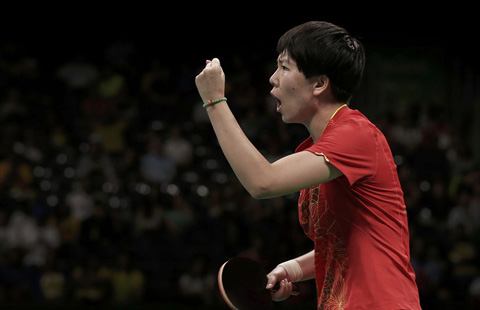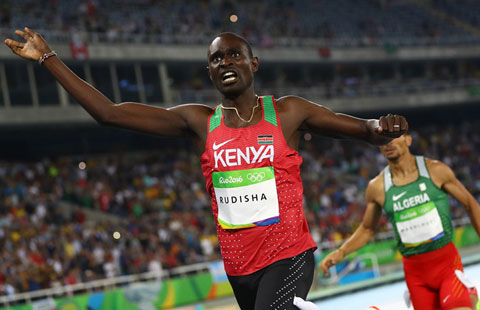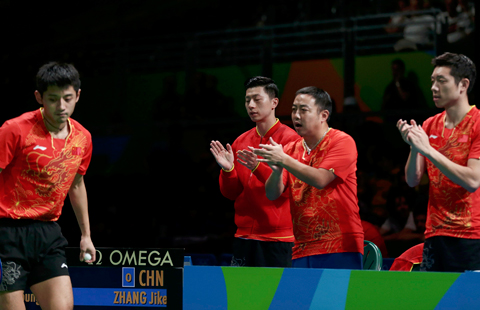Women grabbing more tube time
By Associated Press in New York (China Daily) Updated: 2016-08-17 07:33
US prime-time coverage dominated by female competitors, study finds
During the first week of the Rio Olympics, women dominated the screen in evening coverage by US network NBC.
Up to Saturday night, 58.5 percent of the competition time on NBC's prime-time telecasts involved women's sports, with 41.5 percent devoted to men.
Three college professors writing a book entitled Olympic Television: Inside the Biggest Show on Earth, announced the results of their research on Monday.
For all of the Summer and Winter Olympics dating to 1994, the 2012 London Games was the only time that women were given more TV time than the men.
But even that has not matched the imbalance seen in Rio so far, said Andy Billings, a sports media professor at the University of Alabama.
"I think it shows that NBC is very progressive compared with any other form of sports media," said Billings, who carried out the research with James Angelini of the University of Delaware and Paul MacArthur of Utica College.
NBC has been among media outlets criticized for incidents of alleged sexism regarding the Olympics.
An network commentator, for example, credited a female Hungarian swimmer's husband for her career turnaround. And an NBC executive said last month the broadcaster sought a reality show-like narrative flow to its coverage to appeal to women not interested in sports.
"We take great pride in knowing that no one devotes more broadcast network prime-time coverage to women's sports than NBC," said Jim Bell, executive producer of the Olympics.
By midafternoon on Monday, US women had earned 36 medals in Rio, 16 of them gold. US men had 32 medals, nine of them gold.
Much of the disparity can be explained by women's dominance in some of the sports that NBC follows most closely in its prime-time telecasts.
For instance, women's gymnastics has accounted for nearly three hours more screen time, Billings said.
The US women's team and Simone Biles have dominated gymnastics in Rio, while US men have been less competitive.
Women's beach volleyball - in which the competitors wear bikinis - has logged two hours and 45 minutes on NBC's marquee telecast, the study found. The men had been on for 35 seconds.
"We'd be naive if we didn't acknowledge that a lot of the sports they are showing involve women in swimsuits and leotards," Billings said.
While this may appeal to men, it generally doesn't turn off women, he said.
Meanwhile, boxing is an example of a sport that doesn't appeal to women at all, and it has not been given any prime-time coverage.
So far at these Games, NBC's prime-time audience has been 55 percent women.
Billings said that with the dominance of Michael Phelps, male swimmers have received an hour's more airtime than women, and men had an edge in early coverage of track and field. He expects the gender disparity to grow closer by the end of the games.









